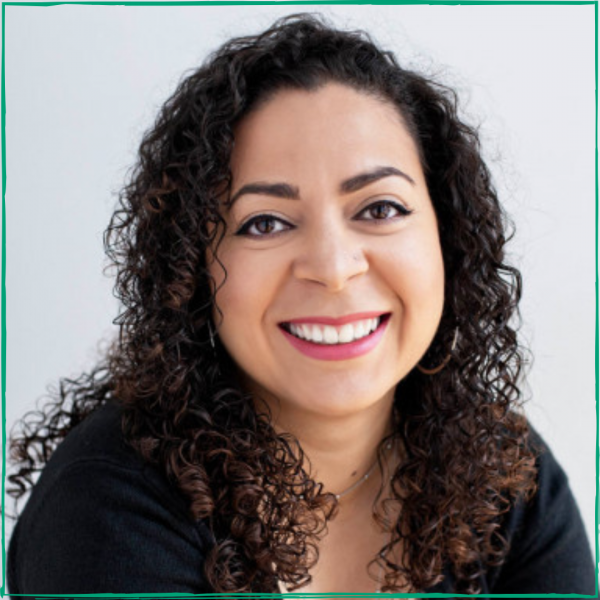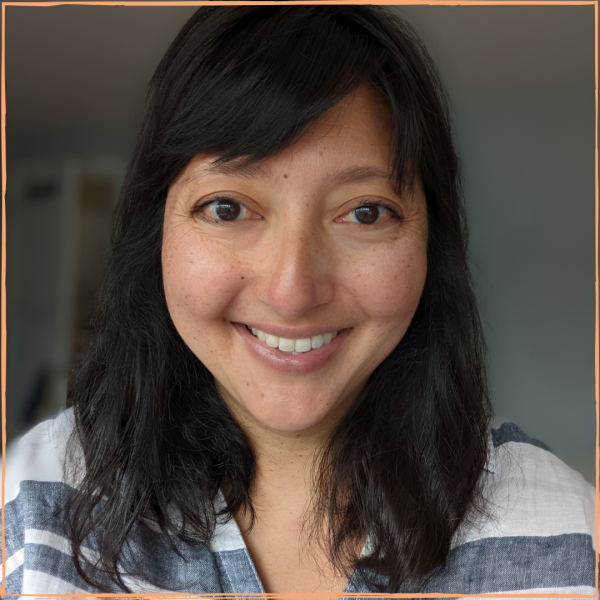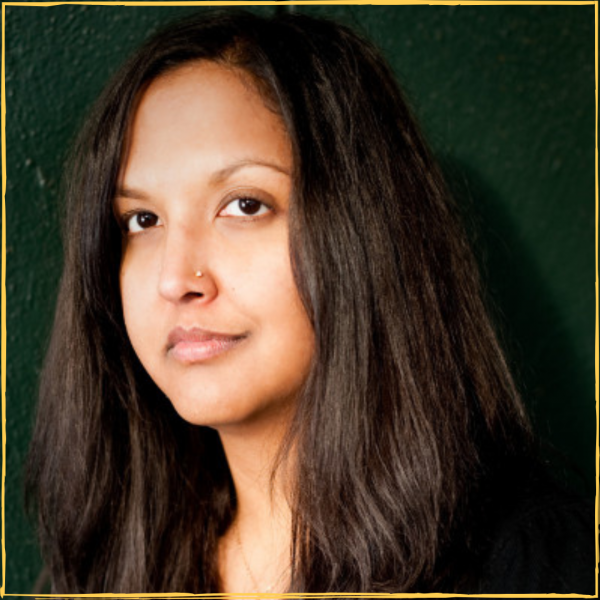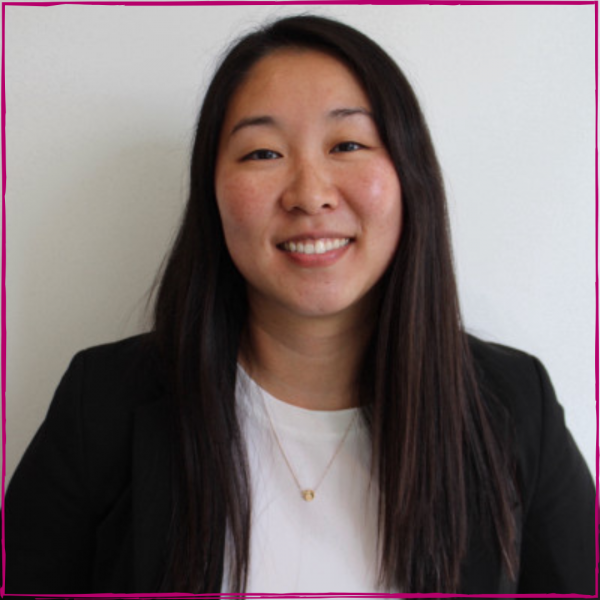Please join us in welcoming our newest faces in the English department: Jaquira Díaz, Naitnaphit Limlamai, Nina McConigley, and Rosa Nam.
Read on to get to know each of them better and learn why they chose CSU!
 Jaquira Díaz
Jaquira Díaz
Jaquira Díaz is the author of Ordinary Girls: A Memoir, winner of a Whiting Award, a Florida Book Awards Gold Medal, a Lambda Literary Awards finalist, an American Booksellers Association Indies Introduce Selection, a Barnes & Noble Discover Great New Writers Selection, an Indie Next Pick, a Library Reads pick, and finalist for the B&N Discover Prize. Ordinary Girls was optioned for television and is currently in development at FX with Díaz as Co-Executive Producer. The recipient of two Pushcart Prizes, an Elizabeth George Foundation grant, and fellowships from MacDowell, the Kenyon Review, Bread Loaf, Sewanee, VCCA, the Wisconsin Institute for Creative Writing, and the Black Mountain Institute, Díaz has written for The Atlantic, The Guardian, Time Magazine, T: The New York Times Style Magazine, Condé Nast Traveler, and The Fader, and her stories, poems, and essays have been anthologized in The Best American Essays, The Breakbeat Poets Vol. 4: LatiNext, Best American Experimental Writing, and The Pushcart Prize anthology. In 2022, she held the Mina Hohenberg Darden Chair in Creative Writing at Old Dominion University’s MFA program and a Pabst Endowed Chair for Master Writers at the Atlantic Center for the Arts.
Q&A
What has your path looked like to get to where you are today?
It’s taken me a very long time to get here! After graduate school, I spent close to ten years working on my own writing while teaching part time. I was lucky enough to get a few fellowships that allowed me to teach, while working to finish my first book. After grad school, I moved to Madison for the Wisconsin Institute for Creative Writing Fellowship, and then I spent a year freelancing and writing full time, and then I moved to Kenyon College for the Kenyon Review Fellowship. I went back to Madison as a Visiting Assistant Professor of Creative Writing and was able to finish my book there. I spent the last ten years or so moving from place to place, splitting my time between Montreal and Miami, and then between Miami and the UK, until I was ready to settle down.
Why did you choose CSU?
I wasn’t sure about Colorado, or about CSU, until I visited. You could say it was magic. I fell in love. What I found here was a community of people who are friendly, generous, and hardworking, and, to quote Ramona Ausubel, “open-hearted.”
What’s your concentration/specialty and what courses are you teaching this fall?
I’m a creative writer. I write mostly creative nonfiction and fiction, although for a long time I considered myself a novelist who also wrote nonfiction. My research and creative work are mostly in creative nonfiction, especially speculative nonfiction, in part because I think that’s where the most fascinating work is happening. I’m teaching a graduate creative nonfiction workshop in the MFA program, where students write memoir, essay, lyric essay, cultural criticism, or a hybrid work that combines them.
What are you looking forward to most this semester?
I’m looking forward to feeling at home, finding spaces that feel like home, and then finding an actual home.
Favorite Fort Collins find?
I can’t say that I found it—it came highly recommended, but wow, do I love Harbinger Coffee! It’s been a great place to sit and write, but also, their coffee is just wonderful.
Naitnaphit Limlamai

Naitnaphit Limlamai, PhD teaches and studies secondary English teacher preparation and how that work manifests justice. Specifically, she investigates how justice is defined, constructed, and enacted in secondary English methods classes and how those ideas travel from university preparation coursework to student teaching classrooms. Her additional interests include how writers develop as such and collaboration. She’s recently began studying organizational change through an antiracist lens.
In addition to her research and teaching, Naitnaphit co-chairs the ALAN (Assembly on Literature for Adolescents of NCTE) Mentorship Committee and served as the diversity, inclusion, justice, and equity chair of the Michigan Council of Teachers of English. Before earning her doctorate degree, Naitnaphit taught high school English for 13 years in public and private schools in Florida, Georgia, and New York.
Naitnaphit is also a 2022-2024 Fellow of the National Council of Teachers of English (NCTE) Cultivating New Voices among Scholars of Color program. Naitnaphit loves reading, listening to podcasts, and Netflixing. She would love it if you shared your recs with her.
Q&A
What has your path looked like to get to where you are today?
When I started college (Boston College) I wanted to be a high school English teacher. After one English class I went to my advisor to change my major—I thought being a high school English teacher was the worst job I could select! So I studied Philosophy and Applied Psychology instead.
As graduation approached, though, I wasn’t sure that anyone would hire me with what I had studied, so I applied to a 2-year Masters program in teaching (at the University of Notre Dame). We took classes in the summer and were shipped off to teach at what they called “underresourced Catholic schools in the South.” I taught 9th grade English and all levels of French in St. Augustine, Florida. When my supervisor came to visit he asked why I wasn’t in the teacher certification program and encouraged me to earn a teaching license alongside my masters degree. He saw something in me that I didn’t see in myself, and I actually really enjoyed teaching, so I spent the next 13 years teaching high school English, in Florida, mostly in Atlanta, but also in Brooklyn. In my time in my masters program, I also was intrigued by my teacher educators who taught us how to teach, and tucked away in the back of my mind that maybe one day I’d want to do that too.
After 13 years of teaching, I felt the urge to go back to school, to engage with questions I had about teaching that I couldn’t quite figure out in the classroom. I entered a joint PhD program at the University of Michigan where I spent the next six years studying what would become the focus of my research: how we prepare middle and high school English teachers in ways that center justice. During my time in grad school I was also the diversity, inclusion, justice, and equity chair of the Michigan Council of Teachers of English where I was able to continue to work with K12 teachers and push their thinking while building programming to support their commitments to justice-oriented and antiracist teaching. In becoming a teacher educator and researcher, I continually ask myself why “teacher me” would listen to “researcher me’ and seek to bridge the space between university preparation and K12 teaching.
Throughout my teaching journey to where I am today, I have tried to remain committed to adolescent learners and to help build a world where all of them can thrive. I love teaching and thinking about teaching and researching teaching—I’m finally doing the job I wanted to do “when I grow up!”
Why did you choose CSU?
Choosing CSU ultimately came down to my desire to work in an English department that had a strong relationship with the secondary English teacher education prep program. My degree is a joint one (English and education), so it was important for me to find a work home where I could continue that interdisciplinary thinking. In my interview process I also really connected with the members of the English department who do English ed, and I could see myself working together, productively challenging each other and learning and growing together.
What’s your concentration/specialty and what courses are you teaching this fall?
My primary area of teaching and research is in secondary English Language Arts teacher preparation that centers and manifests justice. I study how teacher educators like myself conceptualize justice-oriented teaching, how they communicate that to preservice teachers, how preservice teachers take up those ideas, and how those ideas move from university coursework to 6-12 English classrooms. I also study collaboration and what makes it successful or frustrated. And I study how teacher educators can help teachers identify as writers and how to teach writing. I’ve just started studying the process of antiracist organizational change, grounded in some work I did with the Michigan Council of Teachers of English.
This fall I’m teaching Methods in Teaching Language Arts and am one of the co-instructors of English Symposium, representing the English ed concentration.
What are you looking forward to most this semester?
This semester I’m most looking forward to developing relationships with new colleagues and students and getting a feel for the vibe of CSU!
What’s one piece of advice or a good wish you’d like to share with your students?
I came into teaching reluctantly and tried to run away from it for a long time. Trust yourself! Listen to the universe! It’ll lead you to where your talents are most needed.
Favorite Fort Collins find?
I have very much enjoyed going on Saturday hikes with my 2 dogs! Every Friday evening I look up a hike and then Saturday morning we go! It’s helped us get to know the area and experience firsthand the beauty of this place. I’m always taking recommendations!
Tell us about something that recently made you smile. 🙂
My partner and I just bought a couch! I’m pumped about it.
Nina McConigley
 Nina McConigley was born in Singapore and raised in Wyoming. She earned her MA from the University of Wyoming, and her MFA at the University of Houston. Her short-story collection Cowboys and East Indians was the winner of the 2014 PEN Open Book Award and a High Plains Book Award. Her work has appeared in The New York Times, Orion, O, Oprah Magazine, Parents, Virginia Quarterly Review, American Short Fiction, and The Asian American Literary Review among others. In 2019-2020, she was the Walter Jackson Bate fellow at the Radcliffe Institute for Advanced Study at Harvard University and is a 2022 recipient of the National Endowment for the Arts (NEA) Creative Writing Fellowship.
Nina McConigley was born in Singapore and raised in Wyoming. She earned her MA from the University of Wyoming, and her MFA at the University of Houston. Her short-story collection Cowboys and East Indians was the winner of the 2014 PEN Open Book Award and a High Plains Book Award. Her work has appeared in The New York Times, Orion, O, Oprah Magazine, Parents, Virginia Quarterly Review, American Short Fiction, and The Asian American Literary Review among others. In 2019-2020, she was the Walter Jackson Bate fellow at the Radcliffe Institute for Advanced Study at Harvard University and is a 2022 recipient of the National Endowment for the Arts (NEA) Creative Writing Fellowship.
Q&A
What has your path looked like to get to where you are today?
I was an English Literature major in college and never took creative writing. After college, I worked as an insurance agent with Prudential Insurance (I know! Ha ha). The money was good, but I felt unfulfilled, so signed up for a night creative writing class at a community center. That class saved my life. From there, I went on to get an MA and then an MFA. Post MFA, I lived in India and worked at a publishing house and did a lot of odd jobs so I could finish my story collection. I was an adjunct at the University of Wyoming for a long time, then began teaching in the Honors College there when my story collection came out. I taught at UW for many years before moving across the border to CSU.
Why did you choose CSU?
I am a writer that writes about the American West, and being from Wyoming, I love the Rocky Mountain region. I visited CSU as a visiting writer years ago, and before my reading went to a potluck at Prof. Camille Dungy’s house. The program had a strong sense of community, and I admired that so much. And that was reiterated to me on my job interview. Every faculty was so warm, and I loved the classes I visited. I thought, I want to be here! To be able to live and work in the places I write about means a lot to me, so being here is a dream.
What’s your concentration/specialty and what courses are you teaching this fall?
Creative Writing Fiction. This fall I am teaching an Advanced Fiction Workshop (E412 and a Short Fiction Class (E236)
What are you looking forward to most this semester?
I think just learning about my new community. And getting to know my students and hearing the stories they have to tell!
That said I am doing some of the campus Tuesday Tours. I am excited to see the Equine Lab and Brew Center – as a fiction writer, I love learning new things and seeing how I can work it into a story. I am incredibly nosy.
What’s one piece of advice or a good wish you’d like to share with your students?
I think remembering that whatever work you are sharing, for an assignment or for workshop, it just says who you are as a writer right now. It doesn’t define your career. We all change and evolve as writers. I used to be so nervous to send work out or to share as I felt it wasn’t good enough. But realizing that it only speaks to who I am now I found weirdly freeing.
Favorite Fort Collins find?
Being Indian, I am very excited about being near an Indian grocery store – so have been happy to go to Turmeric Indian Grocery. They get fresh vegetables in once a week – so to have drumstick and fresh curry leaves is AMAZING. I may just turn out to be a good Indian cook.
Tell us about something that recently made you smile. 🙂
My toddler just became potty-trained. Ha ha. Actually, there is a rock on Highway 287 near Fort Collins, and people paint it all the time – there are funny messages and phrases. Whenever I drive from Wyoming, I look forward to passing it and seeing what it says. It makes me smile all the time, as I think about the determination you must have to have to paint a big rock in the middle of nowhere. I feel like the people who leave messages there have big feelings, and I have to admire that.
Rosa Nam

Dr. Rosa Nam teaches courses in Young Adult literature, writing in the disciplines, and research methods. Her research centers on critical literacy, contemporary diverse adolescent literature, and AsianCrit in education. Before joining CSU, Dr. Nam worked with pre-service teachers in university and alternative certification programs and was a high school English teacher in Houston, TX. She is currently an assistant editor of The ALAN Review and a Walden Book Award committee member. Her work has been published in Multicultural Perspectives, Journal of Adolescent and Adult Literacy, and the Journal of Language & Literacy Education.
Dr. Nam is also a 2022-2024 Fellow of the Literacy Research Association’s STAR (Scholars of color Transitioning into Academic Research institutions) Mentoring program.
Q&A
What has your path looked like to get to where you are today?
The path was a precarious one from graduating with my PhD in the middle of the pandemic, moving to Massachusetts for my first professor gig, and then heading out west to start this new position at CSU all within 13 months.
Why did you choose CSU?
CSU offered me a great position where I could focus on my research, teach, and work with equity-minded, critical, and kind colleagues.
What’s your concentration/specialty and what courses are you teaching this fall?
My focus is on supporting teachers in using contemporary diverse adolescent literature for critical literacy in secondary English classrooms and studying education through an AsianCrit lens. I’m teaching Writing in the Disciplines and Young Adult literature this fall.
What are you looking forward to most this semester?
I’m looking forward to conducting research and writing and taking breaks to run the trails near the reservoir.
What’s one piece of advice or a good wish you’d like to share with your students?
Take it easy. Have fun!
Favorite Fort Collins find?
The foothills trail.
Tell us about something that recently made you smile. 🙂
Discovering Shipley’s Donuts in Aurora.